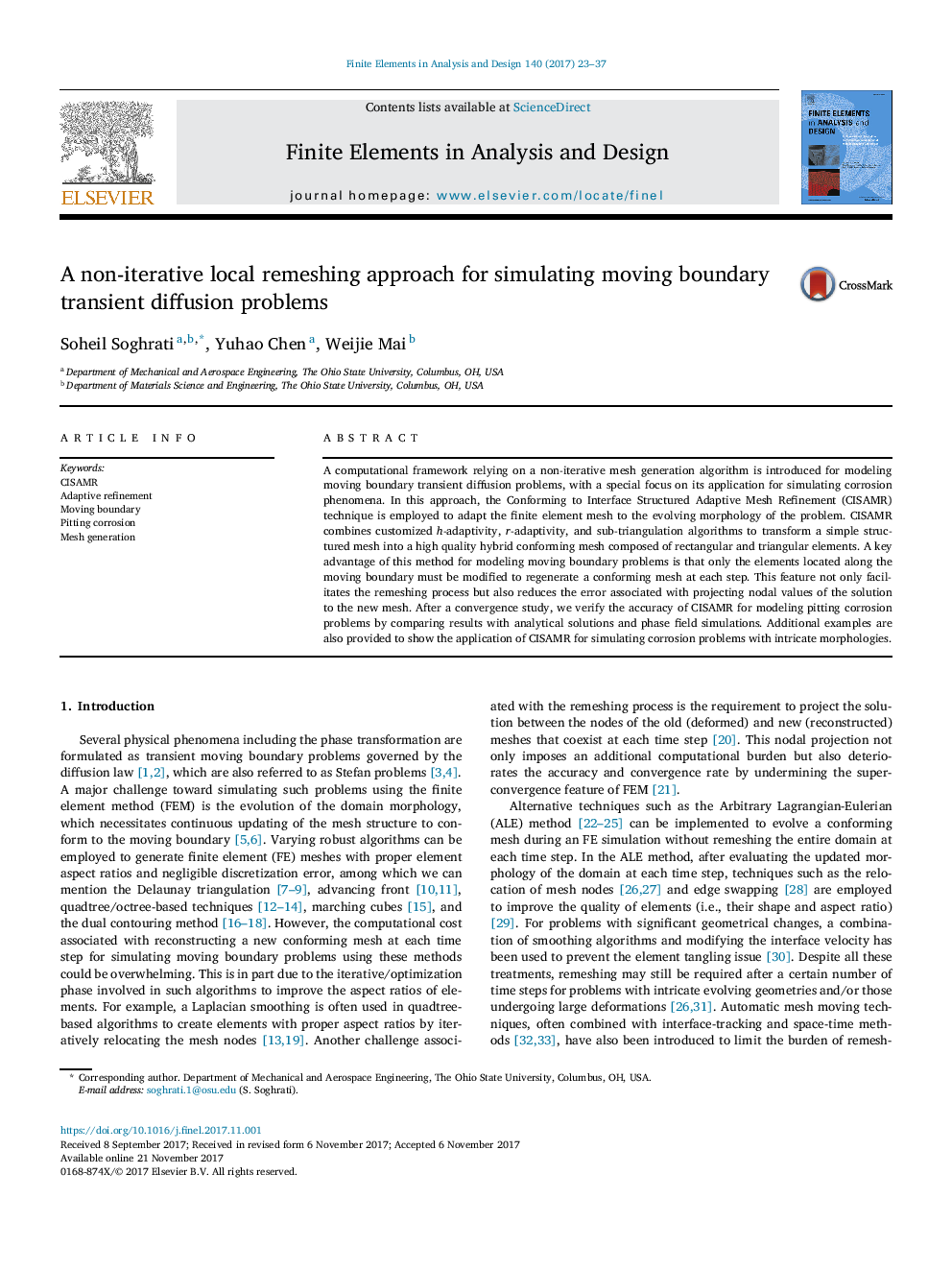| Article ID | Journal | Published Year | Pages | File Type |
|---|---|---|---|---|
| 6925475 | Finite Elements in Analysis and Design | 2018 | 15 Pages |
Abstract
A computational framework relying on a non-iterative mesh generation algorithm is introduced for modeling moving boundary transient diffusion problems, with a special focus on its application for simulating corrosion phenomena. In this approach, the Conforming to Interface Structured Adaptive Mesh Refinement (CISAMR) technique is employed to adapt the finite element mesh to the evolving morphology of the problem. CISAMR combines customized h-adaptivity, r-adaptivity, and sub-triangulation algorithms to transform a simple structured mesh into a high quality hybrid conforming mesh composed of rectangular and triangular elements. A key advantage of this method for modeling moving boundary problems is that only the elements located along the moving boundary must be modified to regenerate a conforming mesh at each step. This feature not only facilitates the remeshing process but also reduces the error associated with projecting nodal values of the solution to the new mesh. After a convergence study, we verify the accuracy of CISAMR for modeling pitting corrosion problems by comparing results with analytical solutions and phase field simulations. Additional examples are also provided to show the application of CISAMR for simulating corrosion problems with intricate morphologies.
Related Topics
Physical Sciences and Engineering
Computer Science
Computer Science Applications
Authors
Soheil Soghrati, Yuhao Chen, Weijie Mai,
